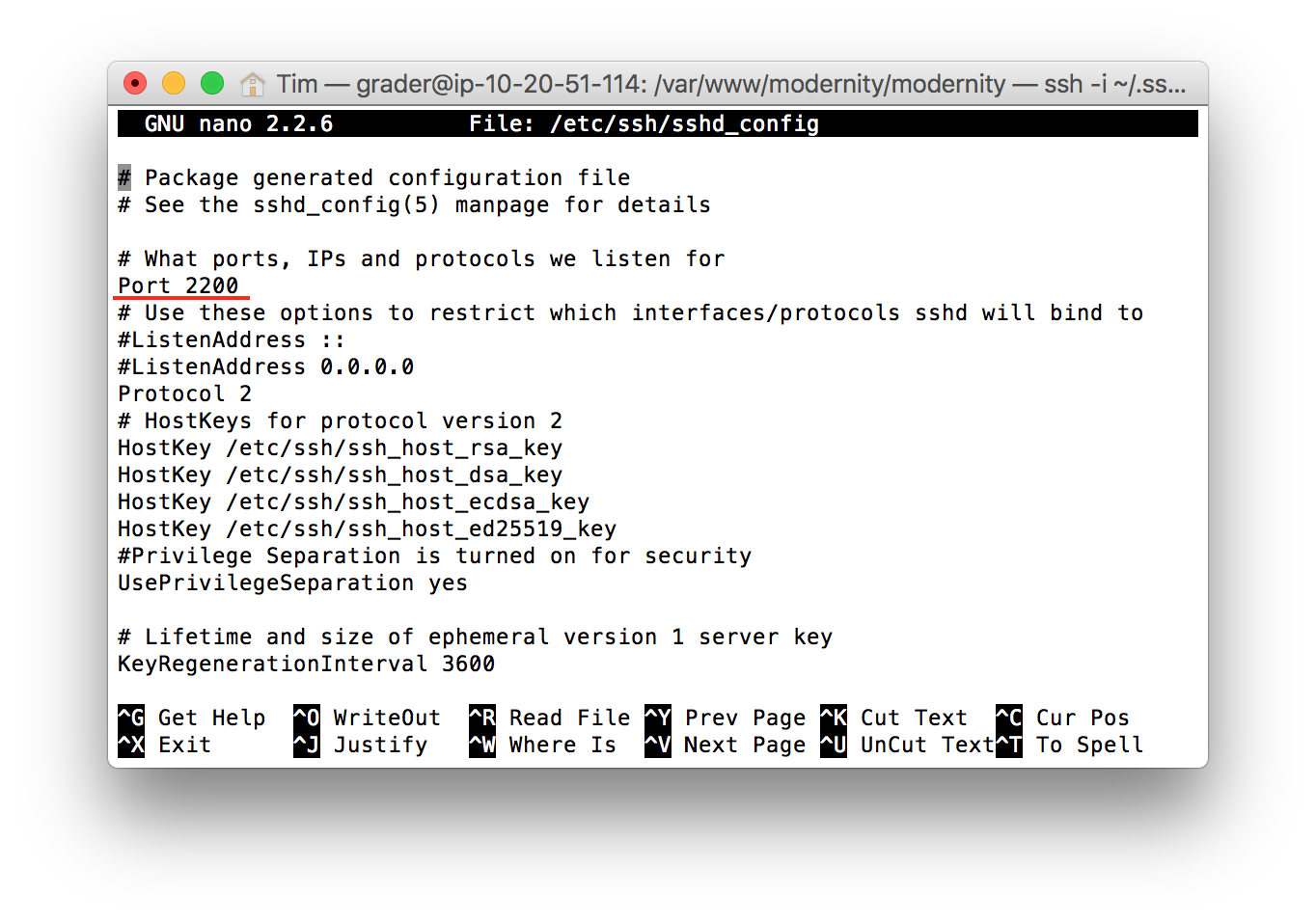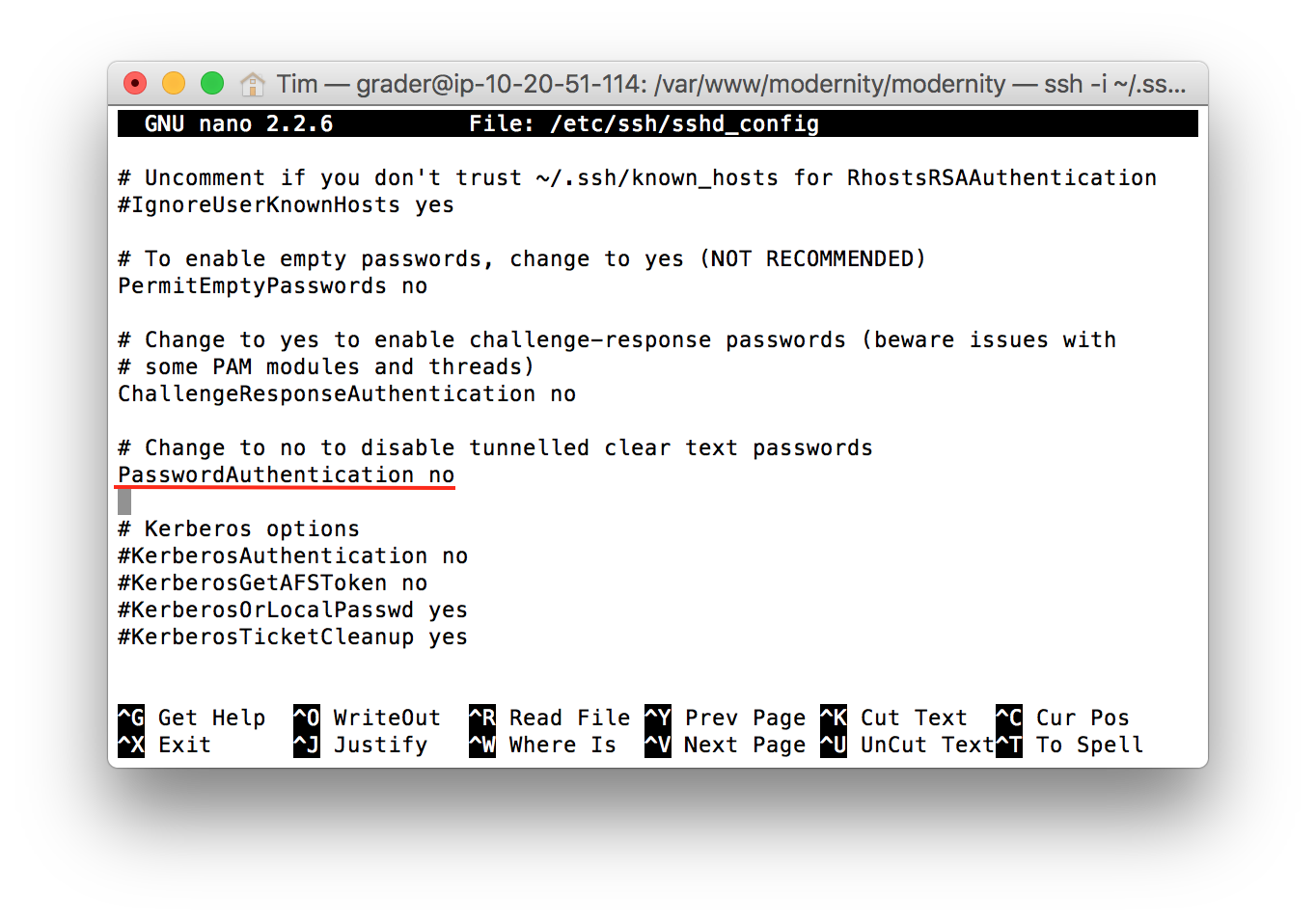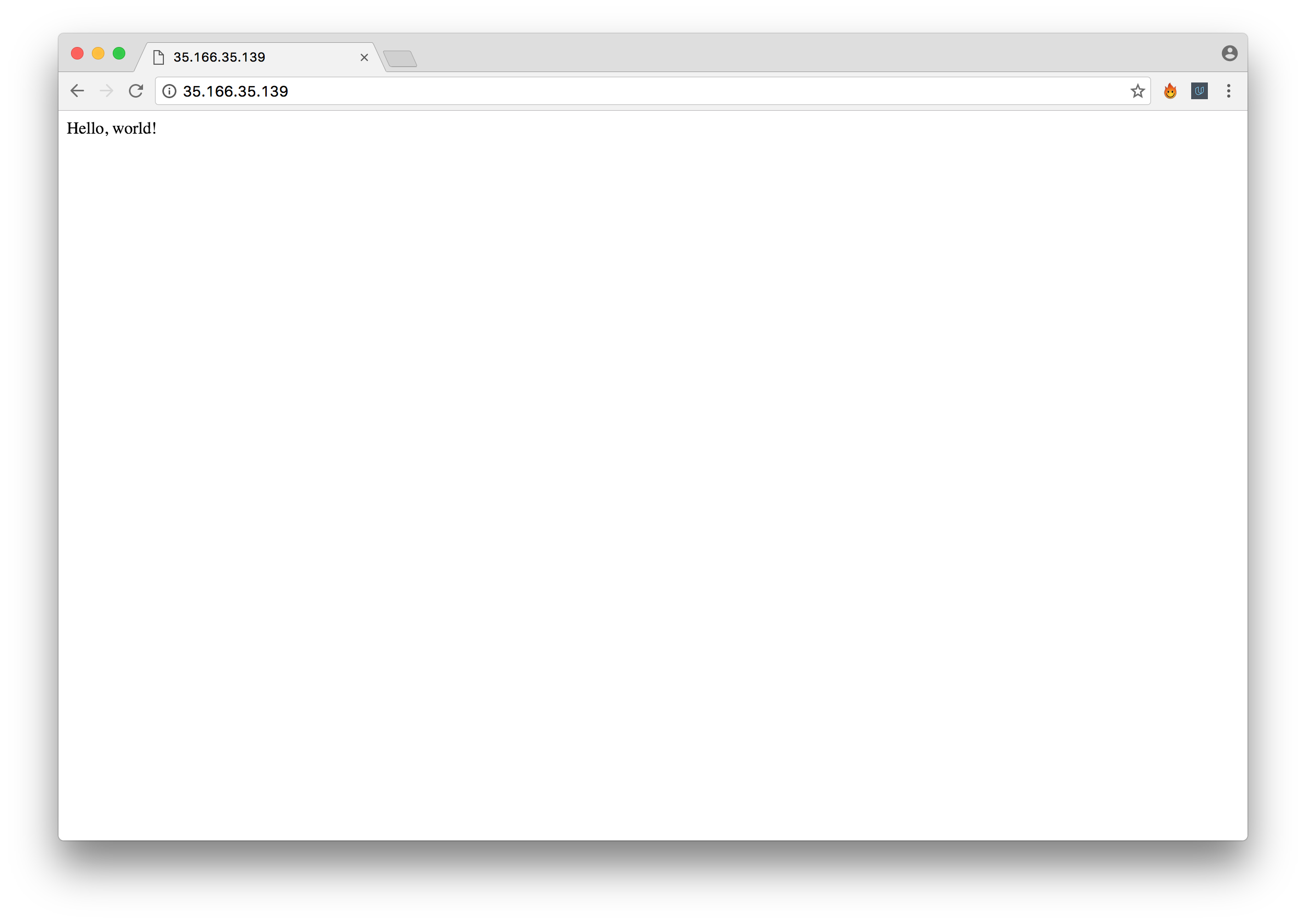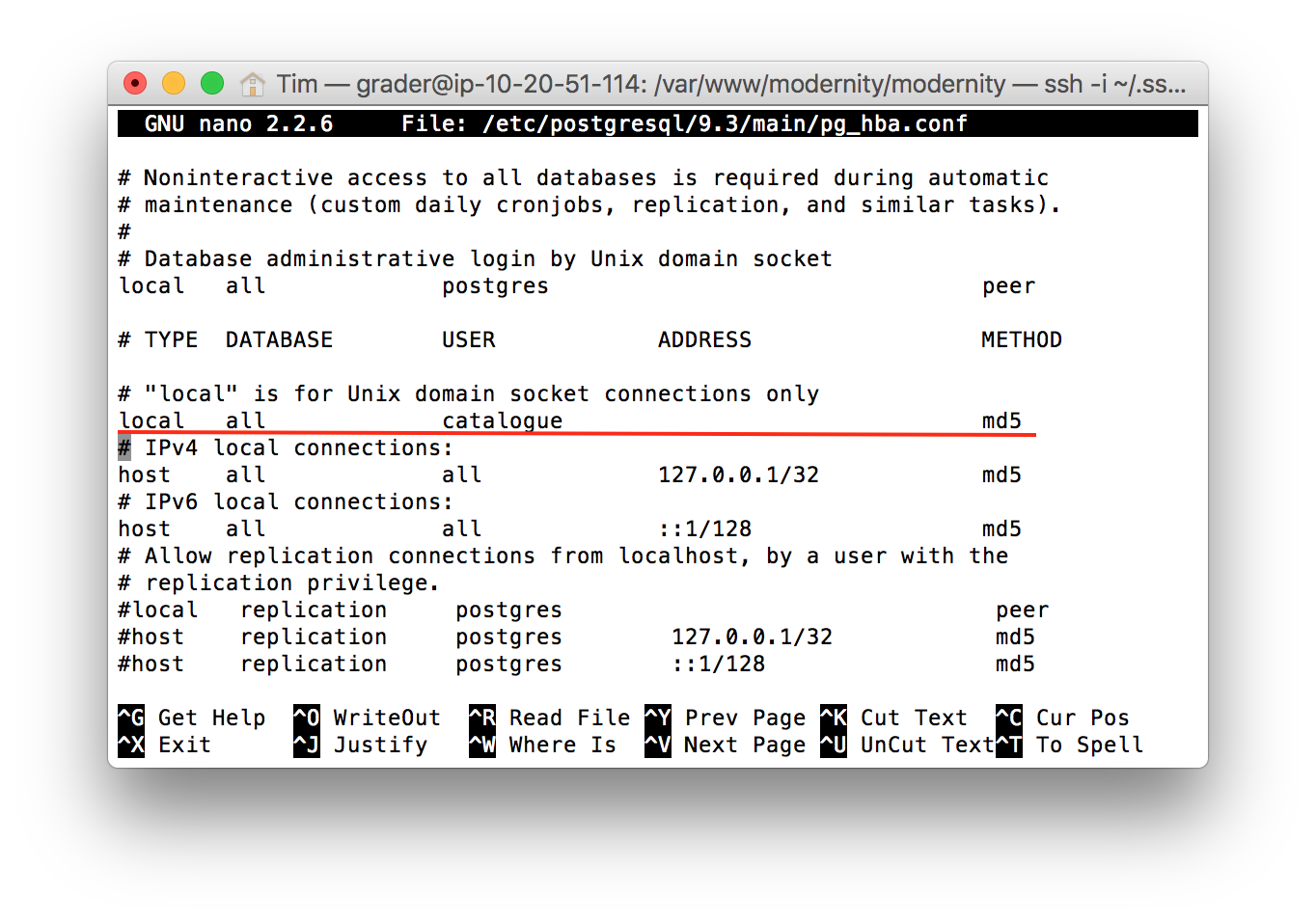Details the configuration of an Amazon EC2 instance to serve a Flask application, with an emphasis on basic security considerations.
IP Address: 35.166.35.139
SSH Port: 2200
Application URL: http://ec2-35-166-35-139.us-west-2.compute.amazonaws.com
grader Linux user password: 8b7df143d91c716ecfa5fc1730022f6b421b05cedee8fd52b1fc65a96030ad52
catalogue Postgres user password: 3645c735a4cc5787fb6f377751350acf
- Created
graderaccount withsudopermission - Updated existing packages
- Changed timezone to Pacific/Auckland
- Changed SSH port to 2200
- Disabled login as
root - Enforced key-based authentication
- Blocked access to all TCP ports other than 80, 2200, and 123
- Installed packages, dependencies, and Python libraries (those installed in the virtual environment are marked with an asterisk):
- Apache
- mod_wsgi
- pip
- python-dev
- virtualenv
- Flask*
- httplib2*
- sqlalchemy*
- oauth2client*
- requests*
- PostgreSQL
- Created a PostgreSQL user
catalogue, with permission to access thecataloguedatabase locally with password authentication - Migrated application data and updated relevant parameters (e.g. database URI, Google JavaScript domain, filepaths, and upload directory permissions)
A user named grader has been created and granted sudo permissions:
root@ip-10-20-51-114:~# sudo adduser grader
...
root@ip-10-20-51-114:~# sudo adduser grader sudo
Packages were updated:
root@ip-10-20-51-114:~# sudo apt-get update && sudo apt-get upgrade
The server timezone has been changed to Pacific/Auckand:
root@ip-10-20-51-114:~# dpkg-reconfigure tzdata
Current default time zone: 'Pacific/Auckland'
Local time is now: Wed Dec 14 11:49:01 NZDT 2016.
Universal Time is now: Tue Dec 13 22:49:01 UTC 2016.
The SSH port has been changed from 22 to 2200 by altering line 5 of /etc/ssh/sshd_config:
Line 28 was changed from PermitRootLogin without-password to PermitRootLogin no to disable root user login:
A public-private key pair was generated on a local machine using ssh-keygen, and that file was uploaded to the server:
$ ssh-copy-id grader.pub grader@35.166.35.139 -p2200
After verifying that the public key had been uploaded, sshd_config was altered to disable password authentication (PasswordAuthentication no).
As desired, it is no longer possible to login as the root user with the key issued during the creation of the EC2 instance:
~ $ ssh -i ~/.ssh/udacity_key.rsa root@35.166.35.139 -p2200
Permission denied (publickey).
The firewall was configured using ufw, enabling only incoming SSH, HTTP, and NTP traffic:
grader@ip-10-20-51-114:~$ sudo ufw allow 2200/tcp # SSH
grader@ip-10-20-51-114:~$ sudo ufw allow 80/tcp # HTTP
grader@ip-10-20-51-114:~$ sudo ufw allow 123/tcp #NTP
grader@ip-10-20-51-114:~$ sudo ufw enable
Checking the firewall status (via sudo ufw status) confirms that these ports are available. Given that the DEFAULT_INPUT_POLICY is DROP (c.f. etc/default/ufw), these will be the only open incoming ports:
To Action From
-- ------ ----
2200/tcp ALLOW IN Anywhere
80/tcp ALLOW IN Anywhere
123/tcp ALLOW IN Anywhere
2200/tcp (v6) ALLOW IN Anywhere (v6)
80/tcp (v6) ALLOW IN Anywhere (v6)
123/tcp (v6) ALLOW IN Anywhere (v6)
The Apache webserver was installed to serve a Flask WSGI application.
First, the Apache package and its dependencies was installed:
grader@ip-10-20-51-114:~$ sudo apt-get install apache2
This made it possible to access the Apache default page at 35.166.35.139
Following the instructions here, dependencies were installed and a virtual host configured to serve a rudimentary Flask app:
Before migrating the catalogue application to EC2, it was necessary to establish a PostgreSQL database to provide data for the application.
First, PostgreSQL was installed:
grader@ip-10-20-51-114:~$ sudo apt-get install postgresql postgresql-contrib
Checking /etc/postgresql/9.3/main/pg_hba.conf confirmed that only local connections (conversely, no remote connections) to the database were allowed.
A database user catalogue, with permission to create tables, was created:
createuser -dRS catalogue -W
At the password prompt, the new user was given a password.
An entry was added to /etc/postgresql/9.3/main/pg_hba.conf for the user catalogue, requiring md5 authentication, and only allowing local connections.
Using psql, a database named catalogue was created and populated from a data dump generated by pg_dump.
Lastly, the application's code was migrated to the EC2 instance. The simplest way to do this was via SCP, replacing the contents of the "Hello, World" app with my application code; the application code is served from /var/www/modernity/modernity.
Naturally, the database URI and other credentials needed to be altered to support the new host. Following these modifications, the application began to work as expected.
More details on the functionality of the application are available here





